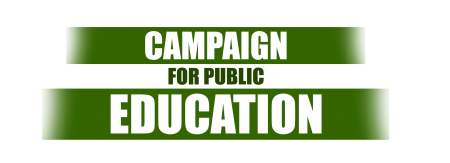Small schools on the block
Trustees move ahead on school closings
Toronto Star April 17, 2008 Kristin Rushowy EDUCATION REPORTER
Toronto public school board trustees approved a plan late last night that could see dozens of small schools with low enrolment closed in the next few years following a ward-by-ward review expected to start in June.
The report by the board's General Asset and Program Planning working group outlines ways to trim costs and free up money to build new schools and more programming by "consolidating" schools with low enrolment and aiming for elementary schools that offer kindergarten to Grade 8 with 450 students and high schools with 1,200 students.
The report was lauded by several trustees, who said it is a starting point that will bring about much-needed change and improvement in the system that is losing 4,000 students each year due to the declining birth rate and the migration of immigrants to the 905.
"This is the most important thing the board has done in the last 10 years. It's very progressive and I think it's going to be very exciting for parents and students," said board Chair John Campbell.
"Schools that have more students, have more opportunities," he said.
"We can make changes that will bring our schools into the 21st century," added trustee Mari Rutka, a member of the working group.
The next step is for individual wards to undergo a review of schools, and the public will be consulted about changes.
Trustee Maria Rodrigues said many of her schools will come under fire, given their enrolment levels. She called the report a "travesty" and said it's unfair to families who move into neighbourhoods and assume their children will be able to walk to school to shut them down.
Trustee Sheila Cary-Meagher, who along with Rodrigues, Bruce Davis, Chris Bolton and Cathy Dandy voted against the report, said it is no different than the changes proposed by the previous Conservative government, which the board railed against.
"Ten years ago, (Premier Mike) Harris brought forth most of this stuff," said Cary-Meagher, who said a one-size-fits-all system doesn't work.
Dandy said she didn't like that the outcome seemed predetermined and that closing schools could be "blowing away public space."
Davis said he realizes the system needs to "contract," but that he disagrees about the optimal school sizes the report puts forth. He said there's no evidence that schools of that size or grade configuration bring about better student achievement.
"I know that we've got to be smaller," he said, adding his ward has at least one school that's not viable.
However, "I believe in village schools in a big city where the principal knows every family and not just the kids who get into trouble."
But Rutka said the numbers aren't absolutes. Trustee Irene Atkinson said there will be flexibility as each ward reviews its situation, and "common sense will prevail."
The report comes as the board is trying to build a case to the province that it is managing its affairs and plans to balance the budget amid criticism from the province it is too big and inefficient.
Rutka said in running schools that are small and underenrolled, the board is "spreading and diluting resources and personnel."
"We don't get to be as creative as we'd like because we don't have enough money," said trustee Josh Matlow. He said all trustees should expect to face upset parents over school closings, "but that's part of doing something."
Continuing education, which some had said would be eliminated under the report, was sent back for further discussion.
Meanwhile, both the premier and education minister lauded the board. "I think that every board around the province has to deal with its capital assets, and has to make decisions that are in the best interest of kids," said Education Minister Kathleen Wynne.
Premier Dalton McGuinty said he has no plans to intervene to keep Toronto schools open.
"You've got to keep an eye on the student population. The fact of the matter is we have a declining student population in Ontario."
But the premier noted his government has "put a lot more new money into the system."
"We've got thousands more teachers – again in the face of declining enrolment, we have 9,000 more teachers combined with close to 9,000 more support staff, millions more textbooks, smaller classes, and we're getting good results, higher academic achievement and higher graduation rates," he said.
– With files by Robert Benzie and Rob Ferguson

